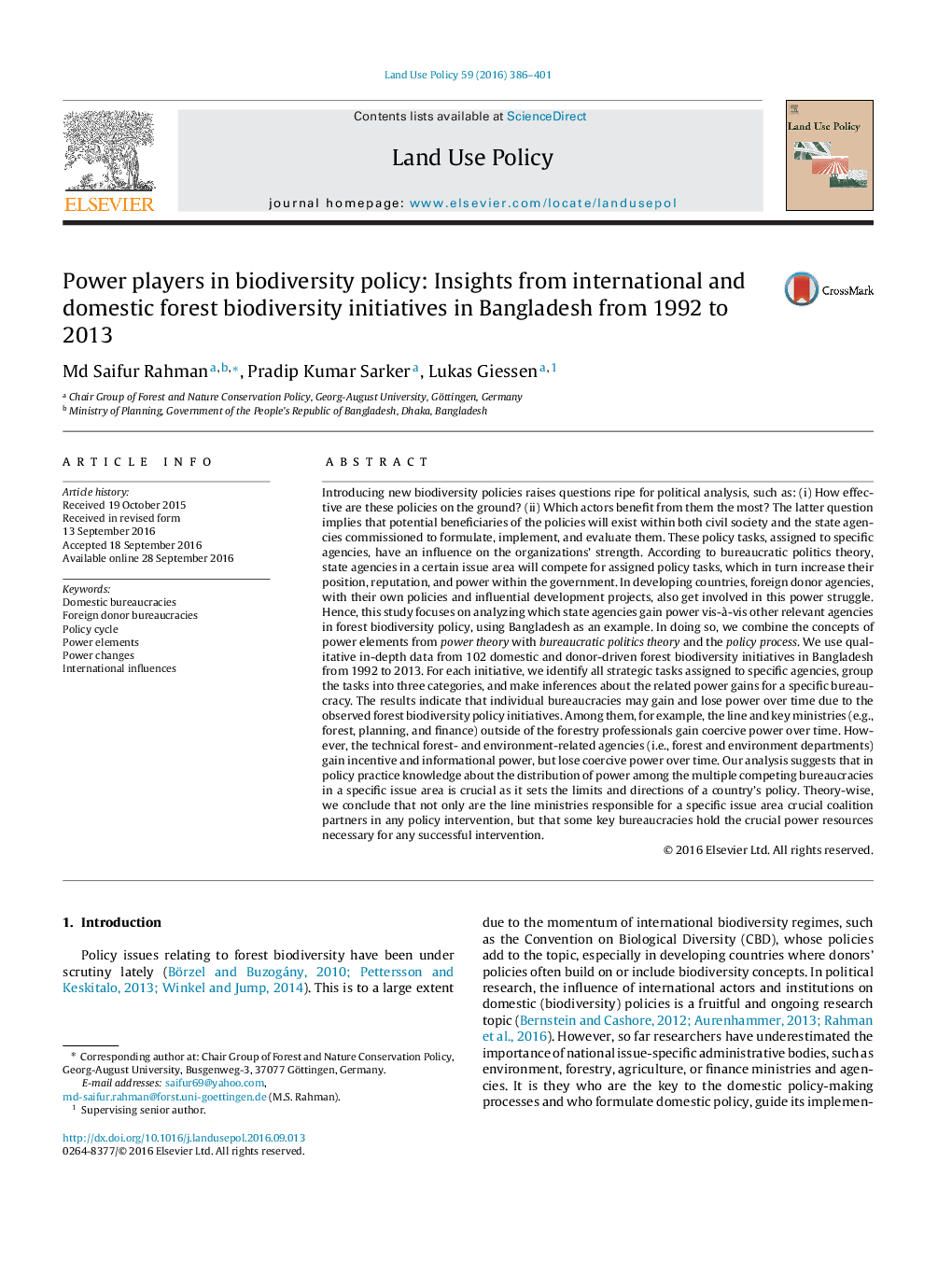| کد مقاله | کد نشریه | سال انتشار | مقاله انگلیسی | نسخه تمام متن |
|---|---|---|---|---|
| 6461565 | 1421824 | 2016 | 16 صفحه PDF | دانلود رایگان |
- We analyse gain and loss of power capabilities of state agencies.
- We analyse 102 domestic and donor-driven forest-biodiversity policies in Bangladesh.
- We identify the strategic tasks assigned to a specific agency from each policy.
- Bangladesh features a typical organizational power structure in forest biodiversity politics.
- Key bureaucracies hold the crucial power resources for forest policy intervention.
Introducing new biodiversity policies raises questions ripe for political analysis, such as: (i) How effective are these policies on the ground? (ii) Which actors benefit from them the most? The latter question implies that potential beneficiaries of the policies will exist within both civil society and the state agencies commissioned to formulate, implement, and evaluate them. These policy tasks, assigned to specific agencies, have an influence on the organizations' strength. According to bureaucratic politics theory, state agencies in a certain issue area will compete for assigned policy tasks, which in turn increase their position, reputation, and power within the government. In developing countries, foreign donor agencies, with their own policies and influential development projects, also get involved in this power struggle. Hence, this study focuses on analyzing which state agencies gain power vis-Ã -vis other relevant agencies in forest biodiversity policy, using Bangladesh as an example. In doing so, we combine the concepts of power elements from power theory with bureaucratic politics theory and the policy process. We use qualitative in-depth data from 102 domestic and donor-driven forest biodiversity initiatives in Bangladesh from 1992 to 2013. For each initiative, we identify all strategic tasks assigned to specific agencies, group the tasks into three categories, and make inferences about the related power gains for a specific bureaucracy. The results indicate that individual bureaucracies may gain and lose power over time due to the observed forest biodiversity policy initiatives. Among them, for example, the line and key ministries (e.g., forest, planning, and finance) outside of the forestry professionals gain coercive power over time. However, the technical forest- and environment-related agencies (i.e., forest and environment departments) gain incentive and informational power, but lose coercive power over time. Our analysis suggests that in policy practice knowledge about the distribution of power among the multiple competing bureaucracies in a specific issue area is crucial as it sets the limits and directions of a country's policy. Theory-wise, we conclude that not only are the line ministries responsible for a specific issue area crucial coalition partners in any policy intervention, but that some key bureaucracies hold the crucial power resources necessary for any successful intervention.
Journal: Land Use Policy - Volume 59, 31 December 2016, Pages 386-401
